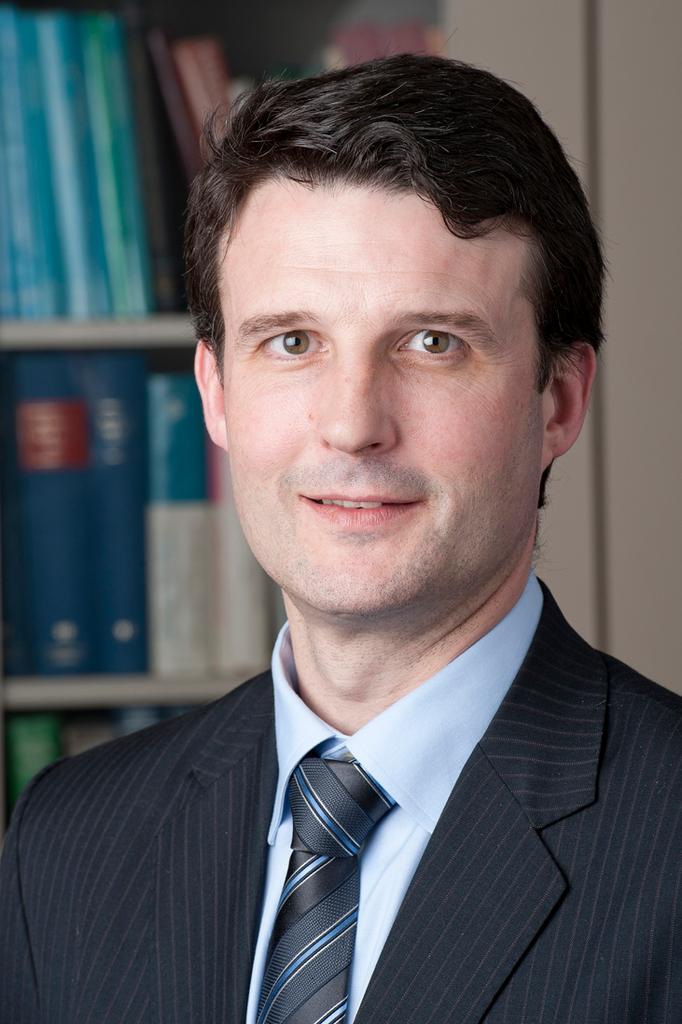February 3, 2020
Q&A with Fulbright scholar Michael Fahey
Submitted by Communications and Marketing

As part of the national Fulbright Scholar Program, K-State's Oz to Oz Fulbright Scholars Seminar brings senior research scholars to campus to build and develop international partnerships and friendships.
Free and open to the public, Michael Fahey, associate professor in the Department of Paediatrics at the Monash University, will present "Toward an Understanding of Cerebral Palsy in the Genomic Era" as part of the Oz to Oz Fulbright Scholars Seminar from 10:30 to noon Tuesday, Feb. 4, in 407 Trotter Hall, the Mara Conference Center of the College of Veterinary Medicine. Fahey, a child neurologist and clinical geneticist with an interest in genetic causes of disability, is the director of child neurology and head of neurogenetics and Monash Children’s Hospital in Melbourne Australia.
According to Fahey, Cerebral palsy, or CP, is the most common physical disability of childhood and is an alteration in movement often occurring with other developmental and medical disorders. Hypoxia ischemia alone accounts for less than 10% of cases, and a specific cause remains elusive for most cases. Increasingly genetic changes are implicated in CP but knowing who and when to test is not defined. Fahey's talk explores some of those issues and presents the current state of genomic changes in CP.
This Q&A with Fahey gives the university community an opportunity to learn more about the scholar speaker and reinforces the importance of mutual understanding and education of diverse research topics.
What is your field of study?
I am interested in the genetic causes of disability, particularly CP. When trying to define better a common but diverse condition, using large data sets is critical. My time in the USA has been spent trying to ensure that we are using common language to describe individuals and including the largest group possible. To this end, I have met with many support groups and clinical centers. Our end goal is to have a functional database that can incorporate data from across the USA, Australia and the world that includes clinical descriptions, neuroimaging and genomic information. Mostly, I am based at the Kruer Lab at the University of Arizona, Phoenix. This lab has helped shape the CP Genomics Field. Additionally, I work with MRI experts from the CSIRO in Australia and researchers at the Cerebral Palsy Alliance, CP Research Network and the CP Foundation.
How is the Fulbright scholarship helping you increase knowledge of this area?
I received a Kinghorn Future Fellowship from the Fulbright Association. The goal of this is to broadly improve lives. In the emerging era of Precision medicine, discovering how genomic changes influence disease is increasingly important. Our collaborations will allow us to understand the cause of disability in a substantial proportion of CP.
What drives your interest in your research?
As a clinician, I am driven to find an explanation to what has happened and to find better treatments for affected individuals.
Since the Fulbright helps to build collaborative relationships, in what areas do you want to collaborate with American researchers?
The welcome provided to me has been universally amazing. Across the country, there is a willingness to contribute and work together.
Why did you accept the invitation to visit K-State?
If there is an opportunity to talk with interested and intelligent people, I think I would be a fool not to take it. Having a diverse view on a complex problem is almost always helpful in developing a solution. I am grateful for the chance to visit Kansas and excited about what may come of it.
Fahey will be on the Manhattan campus from Feb. 2-5. Yulan Xiong, assistant professor anatomy and physiology, is his K-State host. During his visit, Fahey will speak with Eric Atkinson, host of "Agriculture Today. "That interview, as well as all other Fulbright scholar interviews, are posted on the K-State Research and Extension News page.
